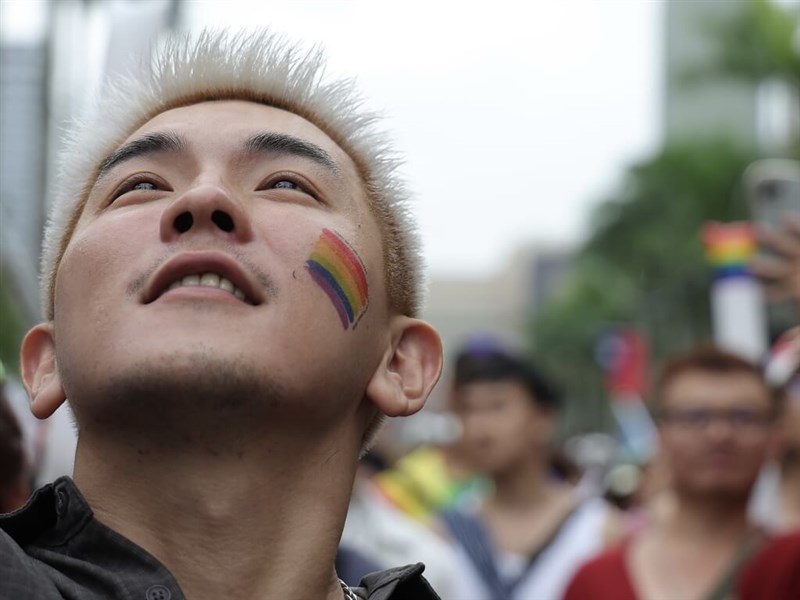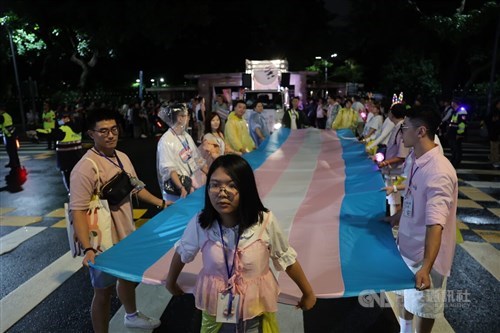LGBTQ RIGHTS/Child rights highlighted at 2nd reproductive law amendment hearing
03/28/2024 08:55 PM
Advocacy groups and scholars focused on children's rights at the second public hearing for amending the Assisted Reproduction Act on Thursday, amid heated debate over surrogacy, assisted reproductive services and expanding the law to include single women and lesbian couples.
(Full text of the story is now in CNA English news archive. To view the full story, you will need to be a subscribed member of the CNA archive. To subscribe, please read here.)
More in LGBTQ RIGHTS
![150,000 join Taiwan Pride as organizers urge understanding]() 150,000 join Taiwan Pride as organizers urge understandingAround 150,000 people attended Taiwan Pride on Saturday, with organizers and participants expressing hope that the parade would help build understanding amid a growing global backlash against diversity, equity and inclusion (DEI).10/25/2025 06:50 PM
150,000 join Taiwan Pride as organizers urge understandingAround 150,000 people attended Taiwan Pride on Saturday, with organizers and participants expressing hope that the parade would help build understanding amid a growing global backlash against diversity, equity and inclusion (DEI).10/25/2025 06:50 PM![3,000 march in Taipei to support transgender community]() 3,000 march in Taipei to support transgender communityAn estimated 3,000 people marched on the streets of Taipei at the 2025 Taiwan Trans March on Friday night to show support for the community, according to the organizer, Taiwan Tongzhi (LGBTQ+) Hotline Association.10/24/2025 10:19 PM
3,000 march in Taipei to support transgender communityAn estimated 3,000 people marched on the streets of Taipei at the 2025 Taiwan Trans March on Friday night to show support for the community, according to the organizer, Taiwan Tongzhi (LGBTQ+) Hotline Association.10/24/2025 10:19 PM![Taiwanese group joins Berlin Pride Parade]() Taiwanese group joins Berlin Pride ParadeA group of Taiwanese people took part in Berlin's annual Pride parade on Saturday, joining hundreds of thousands of participants in one of Europe's largest LGBTQ+ events.07/28/2025 06:06 PM
Taiwanese group joins Berlin Pride ParadeA group of Taiwanese people took part in Berlin's annual Pride parade on Saturday, joining hundreds of thousands of participants in one of Europe's largest LGBTQ+ events.07/28/2025 06:06 PM
Latest
- Politics
Economic ties no longer boost Taiwan-China relations: Expert
12/23/2025 10:04 PM - Politics
Taiwan civic groups flag human rights issues in 'Two Covenants' report
12/23/2025 09:54 PM - Society
5 undersea cables planned to boost communications resilience: Minister
12/23/2025 09:40 PM - Business
Taiwan's export orders soar almost 40% to hit monthly high in November
12/23/2025 08:03 PM - Business
Think tank raises 2025 growth forecast to 7.25%, urges caution for 2026
12/23/2025 07:03 PM


